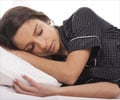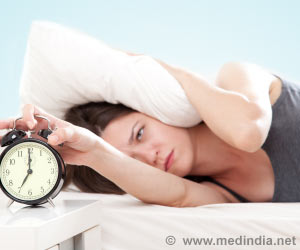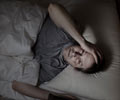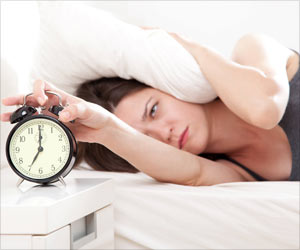The homeless not only sleep less but are more likely to suffer from insomnia and daytime fatigue.

- The homeless people tend to live on streets, in temporary shelters or in small services paid hotels.
- Since they do not have access to safe and warm beds at night, they sleep less.
- The homeless reported a shorter sleep time of 6 hours and 31 minutes.
Sleep is part of good health. It is a state of inactivity and unawareness that provides the required rest and rejuvenates an individual for the activities of the ensuing day with increased vigor.
The average need for adults is 7-8 hrs, but the requirements vary. The amount of sleep that one needs is that optimum amount which allows one to function throughout the day without feeling drowsy, even under conditions that promote sleep.
If for some reason the sleep pattern is interrupted repeatedly, the deeper stages of sleep are not attained. The best guide would be a subjective assessment; if a person wakes up feeling fresh and alert then it is a sign of good sleep.
Insomnia means getting insufficient sleep which can be in the form of difficulty in falling asleep or difficulty in maintaining sleep. Although about 30% of adults have symptoms of insomnia, it is seldom reported, and hence is an under- treated disorder.
Survey
The participants who had an average age of 40 years, fit into the criteria for homeless in French cities by living-
- on the street
- in short-term shelters
- in small social services paid hotels
- other facilities for homeless people with children
Responses from the homeless were compared to individuals in the general population who participated in a large survey of the French adult population.
Results
The homeless reported a shorter total sleep of 6 hours 31 minutes compared to 7 hours 9 minutes, reported among the general population.
About 41% of the homeless reported insomnia compared to 19 % of the general population.
33% of the homeless reported daytime fatigue compared to 15% of the general population.
About 25% of the homeless also stated using drugs to help them sleep, compared with 15% of the control group.
Among the homeless, 8% reported less than four hours of total sleep over the past 24 hours compared with 3% of the general population, according to the results. Women were twice a likely as men to report that they slept less than four hours.
"We believe that improving sleep deserves more attention in this vulnerable group. We strongly support strategies other than hypnotic agents to improve sleep in the homeless, including more careful control of noise, lighting, heating and air conditioning at night. Facilities could provide residents with sleep aids, such as earplugs, eye sleep masks and pillows. Screens between beds could offer some sense of privacy, even in collective dormitories, and addressing issues of personal security should promote better sleep," the article concludes.
The research letter is published online by JAMA Internal Medicine.
Reference
- Sleep Disorder:Insomnia - (https://www.medindia.net/patients/patientinfo/insomnia.htm)
- Learn about Sleep - (https://www.medindia.net/patients/patientinfo/Sleep.htm)
- Damien Léger et al. Sleep Loss in the Homeless—An Additional Factor of Precariousness : Survey in a Group of Homeless People. JAMA Internal Medicine; (2016) doi:10.1001/jamainternmed.2016.7827
Source-Medindia















